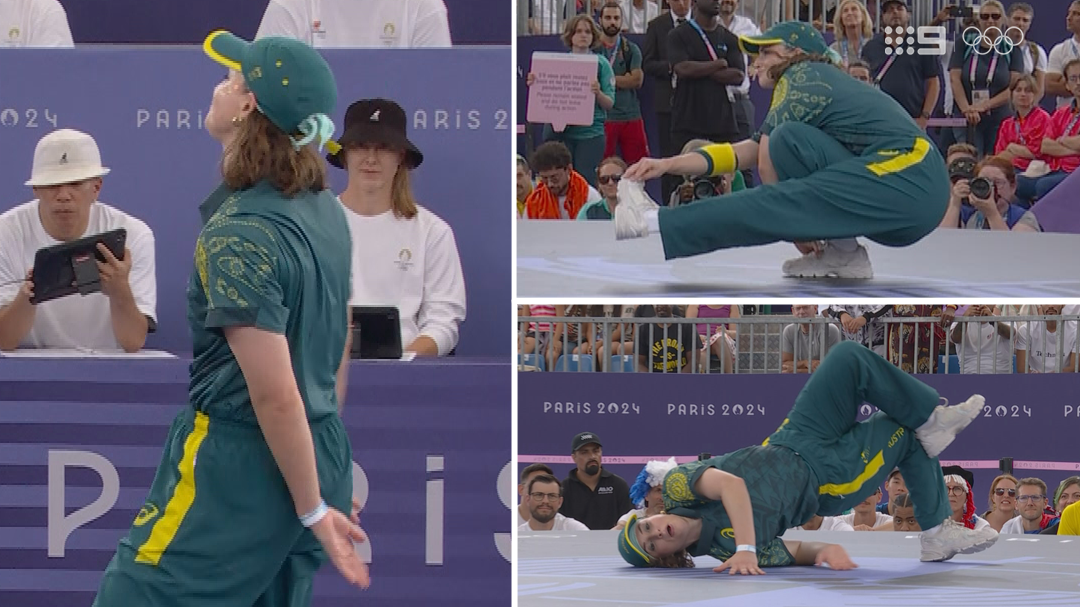
The Olympics has always been a grand stage for athletes from around the globe to showcase their skills, and this year’s Paris Games have introduced breaking, or breakdancing, as a new sport. However, Australia's debut in this thrilling event didn’t quite go as planned, leading to a significant amount of global mockery and criticism. Our representative, Rachael Gunn, known by her breakdancing moniker Raygun, has become the subject of scathing commentary and online ridicule following her performance.
As breaking made its Olympic debut, many eyes were on the fresh and dynamic event. The sport, which has deep roots in hip-hop culture, aims to captivate younger audiences with its energetic moves and vibrant battles. Yet, despite the sport's potential to connect with a new generation, Raygun’s performance left much to be desired. Social media quickly erupted with reactions, many of which were far from flattering.
Raygun's entrance onto the stage was marked by a noticeable contrast to her competitors. In a sea of youthful and stylish breakdancers, Raygun appeared out of place, with her more traditional attire likened to that of a school PE teacher. This stark difference did not go unnoticed, with many viewers expressing their disbelief and discomfort at what they perceived as a lackluster presentation.
Comments flooded in, highlighting the perceived disconnect between Raygun’s appearance and the lively, modern essence of breaking. Phrases like “second-hand embarrassment” and “someone’s mum” were used to describe the reaction from the audience and online commentators. The harsh reality was that Raygun did not secure any rounds in her battles, which was a clear indicator of the gap between her performance and the expectations of the judges and audience.
The Olympics’ decision to include breaking was part of a broader strategy to modernize the Games and appeal to a younger demographic. Previous additions like surfing and skateboarding were steps in this direction, but breaking was seen as the ultimate test of this approach. Unfortunately for Raygun, this experiment did not yield the hoped-for success. The breaking event, which featured 16 B-boys and 16 B-girls battling it out in solo performances, was meant to bring a fresh, vibrant energy to the Games. While the atmosphere at the Paris Place De La Concorde Urban Park was electric, Raygun’s performance did not resonate with the audience or the judges.
The format of breaking involves a series of round-robin battles, with competitors judged on creativity, personality, technique, variety, performativity, and musicality. Despite the high stakes and the competitive nature of the event, Raygun’s performance was marked by a lack of the flair and innovation expected at such a high level of competition. The judges’ decision not to award her any rounds underscored the challenges she faced in aligning with the sport’s requirements.
In the context of the Olympics’ effort to integrate breaking into the lineup, the focus was on creating a spectacle that resonates on social media and with younger viewers. The presence of celebrities like Snoop Dogg added to the event's appeal, but for Raygun, it highlighted a contrast between her performance and the broader excitement surrounding the sport.
Breaking’s introduction to the Olympics has been both a bold move and a subject of controversy. While it aims to bring new energy to the Games, it also raises questions about how well these new sports fit into the traditional Olympic framework. For Raygun, the debut was a challenging start, marked by a reaction that was far from the triumphant introduction hoped for.
As the Paris Games continue, the future of breaking in the Olympics remains uncertain. The sport’s inclusion in 2024 is a one-time experiment, with no guarantee of a return in future Games. For now, the world’s reaction to Raygun’s performance serves as a reminder of the high expectations and intense scrutiny faced by athletes on the global stage.


0 Comments